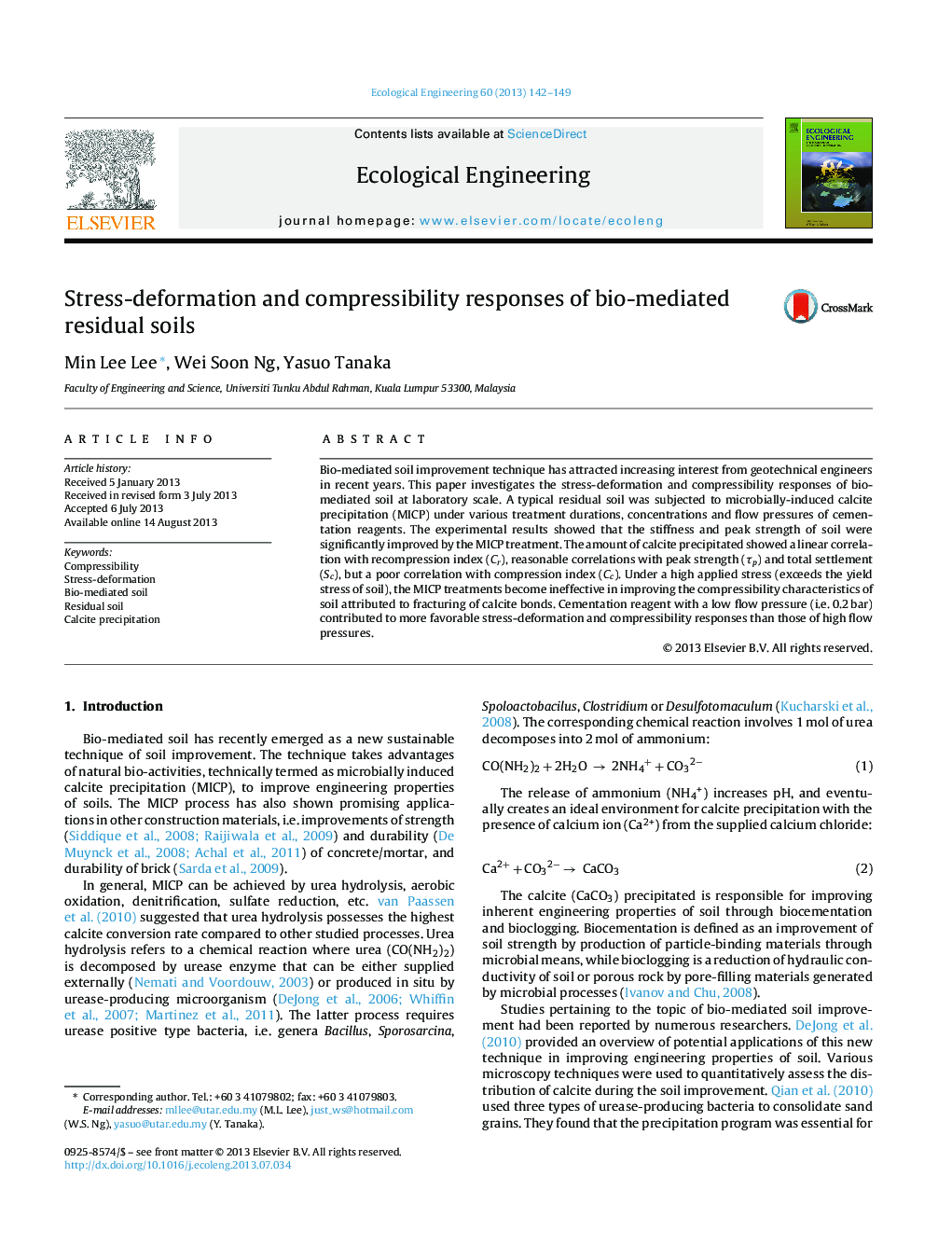| Article ID | Journal | Published Year | Pages | File Type |
|---|---|---|---|---|
| 6302372 | Ecological Engineering | 2013 | 8 Pages |
Abstract
Bio-mediated soil improvement technique has attracted increasing interest from geotechnical engineers in recent years. This paper investigates the stress-deformation and compressibility responses of bio-mediated soil at laboratory scale. A typical residual soil was subjected to microbially-induced calcite precipitation (MICP) under various treatment durations, concentrations and flow pressures of cementation reagents. The experimental results showed that the stiffness and peak strength of soil were significantly improved by the MICP treatment. The amount of calcite precipitated showed a linear correlation with recompression index (Cr), reasonable correlations with peak strength (Ïp) and total settlement (Sc), but a poor correlation with compression index (Cc). Under a high applied stress (exceeds the yield stress of soil), the MICP treatments become ineffective in improving the compressibility characteristics of soil attributed to fracturing of calcite bonds. Cementation reagent with a low flow pressure (i.e. 0.2Â bar) contributed to more favorable stress-deformation and compressibility responses than those of high flow pressures.
Related Topics
Life Sciences
Agricultural and Biological Sciences
Ecology, Evolution, Behavior and Systematics
Authors
Min Lee Lee, Wei Soon Ng, Yasuo Tanaka,
